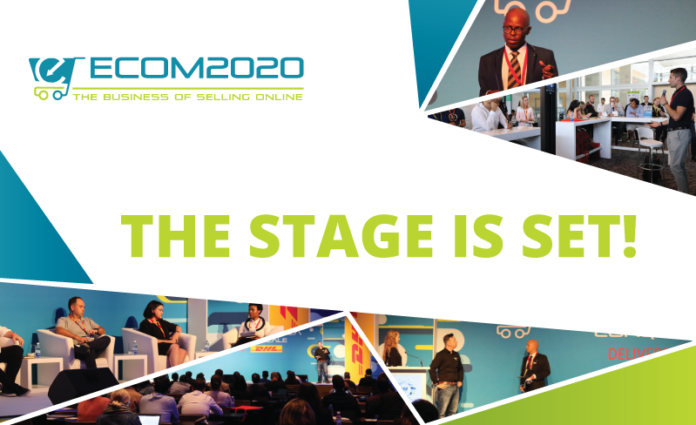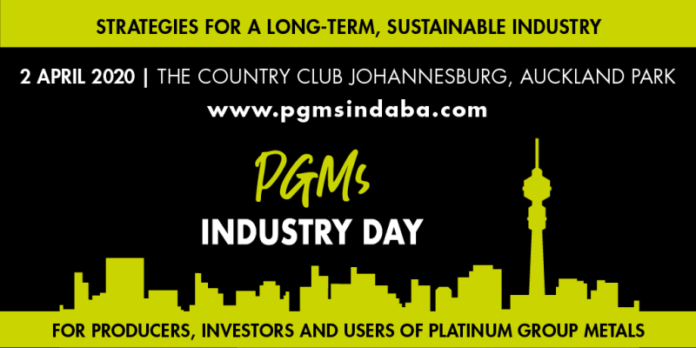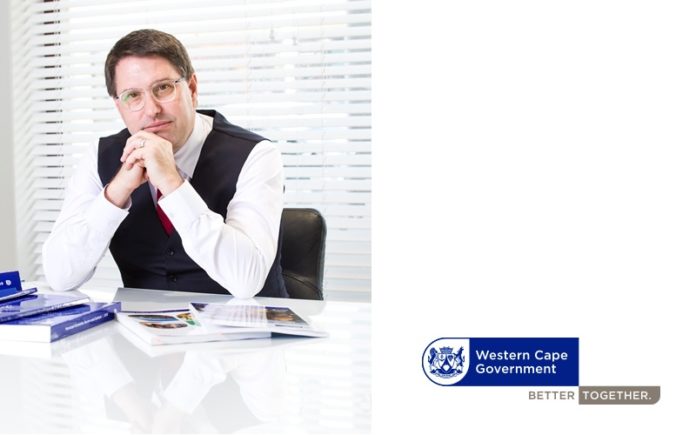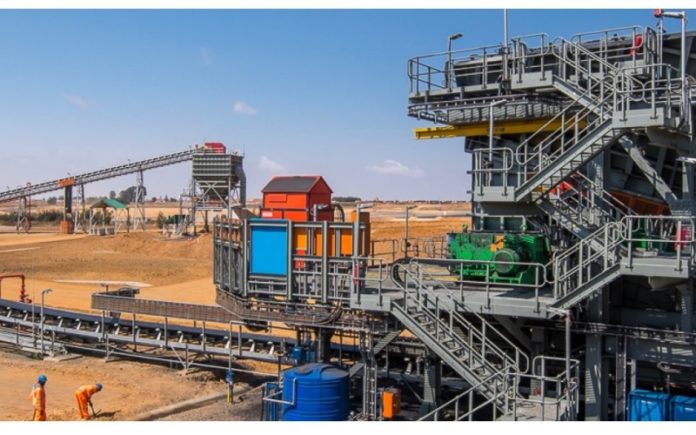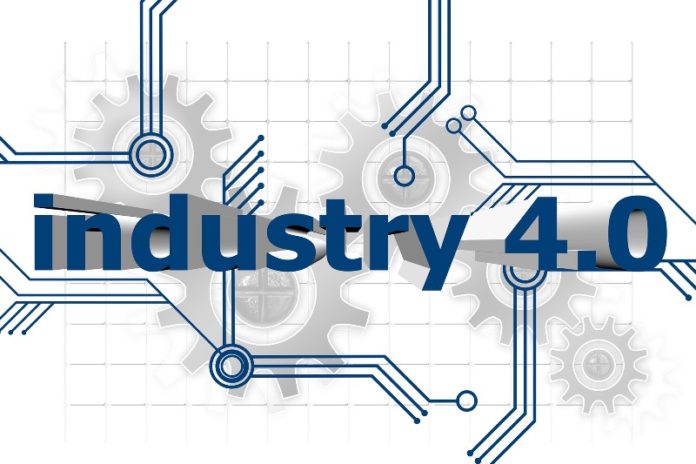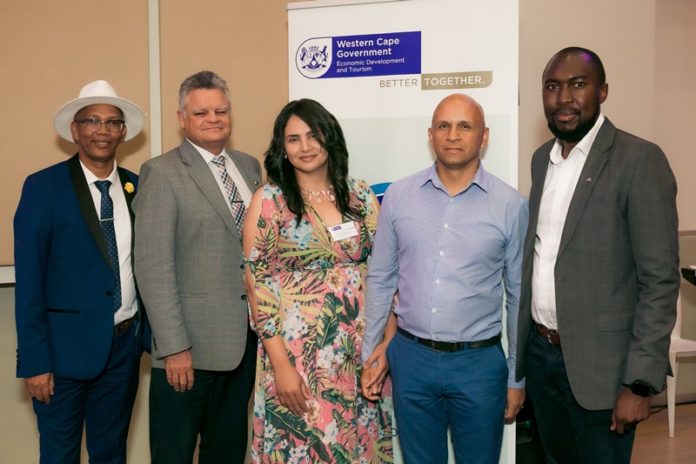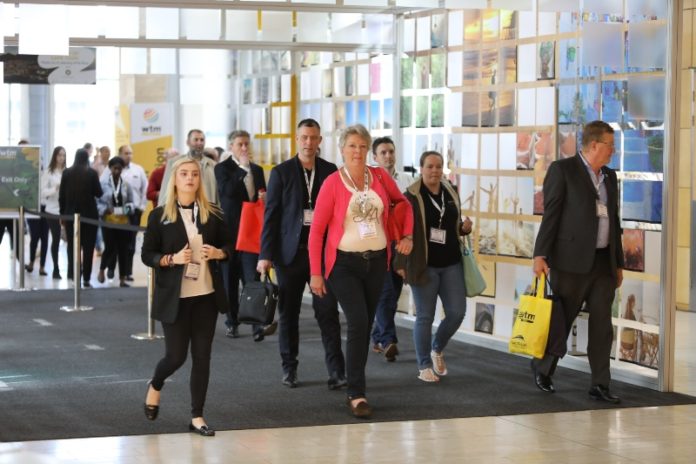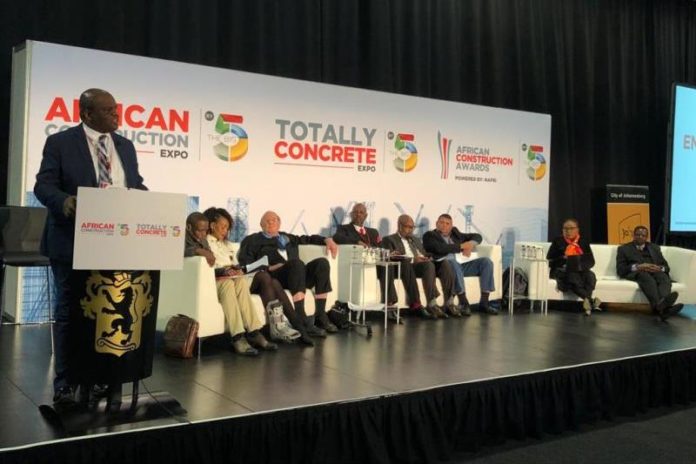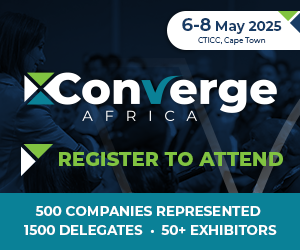Research Paper – Ready for the 4th Industrial Revolution
By Ms Melanie Vermaak, Academic Head at False Bay TVET College
Are we creating panic about technology, when what we need to do is to ensure that our students are prepared emotionally for the impact of the digital age?
What do we need to put in place to ensure that our students are ready for the 4th Industrial Revolution?
It has been said many times over that we are training students for jobs that do not yet exist and that technology is changing at such a rapid pace that we will never be able to catch up. A metaphor for this is about training for an athletics meeting but not knowing what events we are going to take part in.
Perhaps some of the panic around the 4th Industrial Revolution is not about training in technology but ensuring that students are prepared to embrace the changes that technology will bring to the way in which we function each day. We may not know what the events are we are going to take part in at the athletics meeting but what about training well-grounded and flexible athletes that will be able to take on the challenges of the athletics meeting and chose the event that best suits them when the time comes?
The term “the 4th Industrial Revolution” or 4IR seems to be the buzz word on everyone’s lips, but many people are wondering when the 2nd and 3rd Industrial Revolution took place. We don’t want to look ill-informed and so we just nod and say, “Yes, the 4th Industrial Revolution is coming and what are we going to do to prepare for this when the robots take over?”
In 1784 the world was exposed to the weaving loom (or spinning jenny), mechanisation and steam power. This was a massive shift in thinking and living. People moved from being self-sufficient producers, seeing to most of their own needs with a bit of bartering between neighbours, to an industrialised society. This was the Industrial Revolution or as we like to call it today, the 1st Industrial Revolution.
Even before the Industrial Revolution there was a period from 1600 – 1740, that is often referred to as the Financial-Agricultural revolution. Farmers started improving on methods of cultivation which led to larger crops. These surplus crops were bartered or sold at markets.
After the advent of steam, mechanisation and the weaving loom (i.e. the 1st Industrial Revolution), society changed from a predominantly agriculture based economy to a production focused economy. Suddenly you did not have to see to all of your needs. You could go out and become a part of the workforce and earn money to see to your needs. This also resulted in people starting to specialise in certain tasks or skills – the advent of the artisan! The very fabric of society changed and people had to adapt to these changes.
Working for a wage and then purchasing what you needed was a fundamental shift in the way in which society operated.
The 2nd Industrial Revolution, from 1780 – 1840, was characterised by mass production, assembly lines and electricity. Imagine living in that era and now suddenly electricity becomes a part of your daily life. Of course it is a disruption and there is resistance to change but can we imagine our lives today without electricity?
The Second Industrial Revolution led to a massive change in the way in which people lived, worked and played. This change impacted on the kinds of tasks that people performed on a daily basis and with electricity, people were able to do more after hours and this had an enormous impact on society, both in terms of economic activity as well as social activity.
The 3rd Industrial Revolution took place from about 1940 – 1970 and is also referred to as the Scientific-Technical Revolution. This time period focused on the development of automation, computers and electronics. Linked to the Third Industrial Revolution is a period in world economy referred to as the Digital Revolution. This takes us from about 1975 to the present. The Digital Revolution focused on the shift from mechanical and analogue systems to electronic systems. This was characterised by the introduction of digital computers and digital storage of information and records. Information and telecommunications underwent massive changes during this time and we often refer to the “Information Highway” as a characteristic of this era.
All of this happened as part of a process. It wasn’t one leap from one day to the next but a gradual shaping of economies, people, jobs, interactions on a human level and communication strategies.
Now we sit at the dawn of the 4th Industrial Revolution (others say the 4th Industrial Revolution is here already) and what does that mean for us and how we work, interact socially, learn and play? This isn’t going to be different. We are going to find change and manage change and embrace change. We are already embracing this in on-line shopping and on-line banking. Imagine telling someone 50 years ago that you could use a cellular phone, go online, order your groceries, pay for them and have them delivered to your door! You would have been labelled insane, yet this is what we do on a daily basis.
Let’s pause for a moment and think about where we have come from. From the early 1700’s to now, society has undergone various stages of Technical Revolution. Technical Revolutions are about increasing productivity and efficiency in order to provide for a growing population and is a natural growth in the way in which we live on this planet.
Technical revolutions don’t only focus on technology and bringing in of new technologies. Technical revolutions are also about how we live and interact differently with each other, how education changes, how we interact with our environment, business, finance, research, spirituality and a host of other systems. Technical Revolutions shape society and culture and can be a catalyst for a number of changes that may be totally unrelated to actual technology.
While the 4th Industrial Revolution or 4IR, speaks to technology, robotics, artificial intelligence, nanotechnology, the Internet of Things and different ways of doing business, our responsibility as educators is to ensure that our students are prepared with the necessary skills to embrace this change and be a part of the change.
The skills that are needed for our students to survive the 4th Industrial Revolution have very little to do with technology, but rather focus on the human element. The 4th Industrial Revolution aims to improve efficiency, reduce poverty, address inequality and improve living conditions.
Teaching or Lecturing within the current Digital environment can’t be ‘Business as Usual’. Educators need to re-examine their approach to teaching or lecturing. The current cohort of students in our classrooms have been born into the information age. They have not had to learn how to deal with technology but rather it is a given and is an integral part of who they are.
This means that our approach to teaching has to be different. Old traditional classroom practice will not work, but a new paradigm shift is needed – a move towards Student Centred Learning where teaching is meaningful, relevant and focused.
Both traditional teaching methods and the physical set up of a classroom need a major overhaul. The concept of a classroom being a room with desks and chairs is no longer relevant. A classroom does not have four walls and learning can take place anywhere and in many different delivery modes. The adaption is needed from the academic teacher or lecturer. The student has made the shift. In fact it was not even a shift for them but rather what they accept as the norm. Current students have no reference to a dial up telephone, cassette tape or telegram.
What is needed is debate on what kinds of shifts are needed and provide practical solutions for lecturers and teachers to use to create their own paradigm shift from teacher centred traditional approaches to learning towards a student centred approach that is adaptable to the current trends and developments in the way in which information is transmitted.
Stephen Covey outlines one of the seven habits of highly effective people as Beginning with the end in mind. This is about developing an outcome oriented mind-set in every activity that you embark on. If that activity is teaching, what is your outcome? How you get there depends on your approach and taking your audience into account is critical.
Where does this leave us now? Do we understand each other (teacher and student) and are we all reaching the outcome in the same way?
What is the mismatch in terms of the “Generation Gap” and where do we find ourselves in relation to the students we are teaching?
Generation X was born from 1960 – 1980 and are hard workers and very career orientated. It is about the corner office and the white picket fence.
Generation Y was born in the early 1980’s – 2000 and are referred to as being the Millennials. This generation embraced technology and made themselves “tech savvy”.
Generation Z were born after 2000 and did not have to adapt to technology as it was an integral part of their makeup. They are self-confident and able to multi task. Generation Z may be engaging with multiple digital devices at a time and have an active digital footprint over multiple digital platforms. Social media is a part of their makeup. They engage with different platforms – Facebook, Google Plus, CafeMom, Fitsugar, Twitter, Tumblr, Fliks, Instagram, Pinterest, YouTube, Vimeo, Viddler, Uber, Lyft to name just a few.
Generation Z is entrepreneurial and are more likely to start a business before entering into formal studies. They approach problems and solutions in a different way. How are we teaching them? Are we giving them the critical thinking skills to be problem solvers? Is our teaching equipping them to deal with the digital disruption that they are part of?
Generation Z has a social conscience and we need to keep this in mind. Unfulfilled aspirations and expectations that are not met will lead to a frustrated group of young people. We often refer to the NEETS (Not Employed or not in Education and Training). This number of young people grows on a daily basis and can lead to massive social instability if their needs are not recognised and addressed.
The shift from Teacher Centred to Student Centred applies not only to our classrooms but also to our teaching methodology. We need to relinquish a bit of control (which is not often easy) and give our students the space to embrace the challenges of the world that they find themselves in. Our roles as teachers will have to be different. It has to move to being a facilitator of learning.
Learning is a social process where understanding is continuously challenged and changed through meeting with other people, other thoughts, other attitudes and new information.
Our role in our classrooms needs to be about ensuring that our students acquire the necessary skills to be able to manage change and be flexible in a changing world. Our students need to be critical thinkers, problem solvers, good communicators, able to work in a group or independently, able to manage conflict situations, able to think out of the box, be creative, have emotional intelligence and able to adapt to change. All of these skills have very little to do with technology. We must not forget the human element as we move through this phase of change in our global environment.
Many teachers will argue about the time. The syllabus and the content needs to be taught and how do I make time to add all of the extra skills into my curriculum? The content is out there online. Students have access to as much information and content that they need. We need to pause and take time to teach the critical skills needed to engage with the mass of information that is at their fingertips.
Student Centred Learning looks at the individual needs of the students and engaging with them in a relevant way that takes their individual learning styles into account. It is about how each individual student meets the outcomes, both for learning as well as assessment and achievement. It is critical to remember that we can all reach the same outcome but in a variety of different ways.
While the cry is often about resources and how do I do this in my classroom and the curriculum that must be covered and the final examination that needs to be prepared for, we need to infuse our teaching with the relevant approach that will allow students the ability to meet the necessary outcomes in the way in which will suit the individual learning needs of each student as well as the demands that our society puts on young people.
The tools of the technological age within our classrooms can be simple solutions.
For example using a cell phone app to conduct a survey within the class or asking students to conduct on line research is using the tools that will get the attention of a student. It does not always have to be about the most advanced and technologically innovative solution. Do what you can with the resources that you have.
Creating a Student Centred Approach in your classroom can be done by incorporating the following simple steps in your teaching:
- Students must be goal orientated – personal and relevant goals.
- Learning must be built on existing knowledge – move from the known to the unknown.
- Stimulate creative thinking – lecturer can assist in developing, applying and assessing strategic learning skills.
- High order thinking – challenge the student! They are capable of more than we think!
- Context of learning – learning must not happen in a vacuum – connect the dots for them.
- Self-Motivation and self-belief have a huge influence on thinking and information processing – what influence does the lecturer have? The use of Problem Based learning.
- Energy – purposeful activities that lead to results that are relevant to the student will result in energetic responses to learning.
- Delivery of appropriate content presented in an enjoyable and interesting manner.
- Social learning – learning is enhanced when linked to social interactions (interactive and collaborative) where individual learning ability and style is also encouraged.
- Set appropriate assessment tools with relevant feedback that will add to the learning process.
In a Student Centred classroom, the lecturer has very clear responsibilities to enhance the development of the necessary skills. These are:
- To inspire students
- Be a subject matter expert
- Be prepared and organised
- Plan for lessons that will engage, interest, captivate and enthuse students
- Be a catalyst for critical thinking and active engagement of students
- Encourage students to develop their skills without relinquishing his/her more traditional role as source of information, advice and knowledge
- Build positive relationships with students (students are keen to learn from people they respect and who are interested in them)
The move towards a Student Centred Approach in your classroom starts with the paradigm shift for the lecturer in understanding the difference between Teaching and Learning.
The differences between Teaching and Learning and Lecturer Centred and Student Centred approaches are outlined below:
Teaching
|
Learning
|
| All students are taught the same body of knowledge regardless of developmental levels. |
Students take an active role in construction of knowledge and play a role in their learning |
| The student is exposed to the same content during the same period of time with an objective of mastering content. |
Prior knowledge forms the foundation by which new learning occurs |
Lecturer Centred
|
Student Centred
|
| The lecturer determines what is taught and how it is taught |
Model of learning that focuses on needs, interests and experiences of the student |
| Students are measured against each other and success is determined by comparing students with each other |
The teacher facilitates the learning by supporting students to engage in the learning process and where students are actively engaged with the content. |
An important part of a Student Centred Approach is the recognition of different learning styles. Each of us learns in a unique way that best suits our individual learning style.
In 1983 Howard Gardner, an American professor of Education at Harvard university, presented his theory on multiple intelligences. He identified nine different intelligences present in human beings. He believed that we all have areas in which we excel.
- Verbal-Linguistic Intelligence: Well-developed verbal skills
- Mathematical-Logical Intelligence: Well-developed logical or numerical patterns
- Musical Intelligence: Ability to produce and appreciate rhythm, pitch and timber
- Visual-Spatial Intelligence: Capacity to think in images and pictures
- Bodily-Kinaesthetic Intelligence: Ability to control one’s body movements
- Interpersonal Intelligence: Capacity to detect and respond appropriately to the moods, motivations and desires of others
- Intrapersonal Intelligence: Capacity to be self-aware and in tune with inner feelings, values, beliefs and thinking processes
- Naturalist Intelligence: Ability to connect with in nature
- Existential Intelligence: Sensitivity and capacity to tackle deep questions about human existence
Do we take into consideration the multiple learning styles that may exist in one classroom and how do we ensure that our approach to teaching and learning enables each of our students to engage with the content in the way that best suits their learning style? Do we know what our own learning style is as a lecturer and how does this influence how we teach?
In The Chronicle of Higher Education (November 2019), David Gooblar comments on research at Harvard that students don’t learn best from a lecture (Eric Mazur – Harvard University) but that students learn best from active-learning strategies, in other words a Student Centred Approach.
“Learning works through active engagement by the learner. Only students can do the work of learning; all the instructor can do is try to create the conditions within which students are more likely to do that work.” Gooblar (2019)
Gamification is going to influence teaching and learning in the future. Do you know that 10,5 million people simultaneously attended a concert as part of the popular game Fortnite? Imagine if this can be harnessed for teaching and learning!
The current industrial change has a huge emphasis on technology and it is clear that there is a need for a skilled workforce that can manage these new areas of technology in a specialised field. What is however also critical is the basic digital literacy of all members of society. There is a huge gap between those who are digitally literate and those who are not. There does not seem to be a middle road. Digital Literacy must become an integral part of any training programme in order for our students to compete in the relevant industry that they find themselves in.
It has to be about a balance. Sometimes it is the small shift in how we approach our teaching that will allow students the space to embrace the disruption and come out at the other end with the necessary skills to survive in the competitive environment that they will find themselves in.
It is about how quickly we all take up the challenge.
It took 75 years for the telephone to reach 100 million users. It took 2 years for Instagram to reach 100 million users and it took 1 month for Pokémon Go to reach 100 million users.
In a few years, the questions that we are struggling with today will already have been answered and there will be new problems that need solutions. It is critical that the leaders of society and industry have Digital Leadership as part of their set of skills. Without the leaders in society and industry, embracing the needs and benefits of Digital Literacy the battle is going to be long and arduous.
The 4th Industrial Revolution is not all about technology but how we prepare people to react with and to technology by ensuring they have the necessary skills to navigate the change.
South Africa has a wealth of natural resources and we need to find innovative and creative solutions to ensure that we develop our Secondary Sector in terms of manufacturing and processing the resources we have instead of exporting the Primary Sector items to other counties and then buying them back. Where is the creative solutions and problem solvers who can think out of the box? The solutions to these problems will ensure an efficient and productive society.
So do we need to panic about the 4th Industrial Revolution and that robots are going to take our jobs? No, what we need to do is ensure that the next generation is prepared and equipped to manage the changes and find creative solutions for the problems that will still be discovered.
Teaching and Learning will change its focus. Students will learn at their own pace and in the manner that best suits them. They have an infinite amount of information at their disposal so the important role that a lecturer now has to fulfil is to equip them to navigate, engage and apply the necessary information.
“The secret of change is to focus all your energy not on fighting the old, but building on the new.” – Socrates

Industry 4.0 Image by Gerd Altmann – Pixabay




